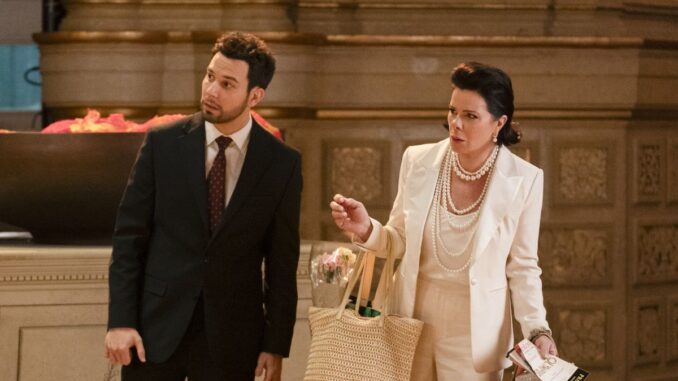
The television landscape, much like a dense, enchanted forest, is both wondrous and treacherous. Within its sprawling canopy, countless stories bloom, each vying for the sun's precious light. Yet, for every enduring oak, there are dozens of delicate saplings that wither, unseen, their narratives truncated before their time. The recent cancellation of CBS's So Help Me Todd serves as a poignant, almost textbook, illustration of this brutal ecosystem – a show not without its charm, yet ultimately felled by the unforgiving arithmetic of low ratings and the cutthroat calculus of a crowded broadcast schedule.
At its heart, So Help Me Todd was a comforting balm in a world often too sharp and cynical. Starring Marcia Gay Harden as the impeccably buttoned-up attorney Margaret Wright and Skylar Astin as her charmingly chaotic son, Todd, a disbarred private investigator, the series offered a delightful generational clash wrapped in a procedural mystery. It was a show designed for an audience seeking warmth, wit, and a familiar narrative rhythm, often praised for its sparkling chemistry and lighthearted tone. It wasn't groundbreaking television, perhaps, but it was reliably enjoyable – the kind of "comfort food" series that makes for pleasant weeknight viewing. For its devoted, albeit smaller, fanbase, the news of its impending final bow was a genuine disappointment, a betrayal of the easy camaraderie the show had fostered.
But the television industry, like any grand machine, does not run on charm alone. It runs on numbers, on viewership metrics, on the relentless tick-tock of the Nielsen clock. So Help Me Todd's primary undoing was its performance in the ratings, particularly in the crucial demographic of adults aged 18-49 – the segment most coveted by advertisers. While its total viewership wasn't catastrophically low for a broadcast network in the streaming era, it consistently hovered in the middling range, never quite achieving the breakout numbers that would solidify its position. In the high-stakes gamble of network programming, a show that isn't a certified hit, or at least showing significant growth, becomes a liability. It's not about being "bad"; it's about not being "enough." The network, operating as a dispassionate accountant, must weigh the cost of production against the revenue generated from advertising, and when that balance tips unfavorably, even a genuinely likable show can find itself on the chopping block. The show, despite its merits, never generated the kind of water-cooler buzz or social media frenzy that signifies a vibrant, expanding audience – a silent but deadly whisper in the ears of executives.
Beyond the stark reality of viewership numbers lies the gladiatorial arena of the broadcast schedule itself. The current television landscape is an explosion of content, a cacophony of voices vying for attention across linear TV, cable, and an ever-expanding universe of streaming platforms. Even within the confines of a traditional broadcast network like CBS, prime-time slots are a finite, fiercely guarded resource. Each hour is a strategic placement, a puzzle piece designed to maximize lead-ins for subsequent shows, retain audiences through commercial breaks, and compete directly with rivals.
So Help Me Todd occupied a competitive Thursday night slot, often following established hits like Ghosts and Young Sheldon. While this theoretically offered a strong lead-in, it also meant the show had to hold onto viewers who might be looking for something more compelling or buzzworthy. When a network assesses its portfolio, it must make difficult choices: which shows are indispensable tentpoles? Which are showing potential for future growth? And which, despite their modest appeal, are simply taking up valuable real estate that could be used for a new gamble, a fresh pilot with the potential for a larger return? So Help Me Todd, with its steady but unspectacular performance, became a candidate for sacrifice. It wasn't a show CBS couldn't live without, especially when facing the perpetual pressure to innovate and find the next big hit. The crowded schedule isn't just about what's airing; it's about what could be airing, the hungry challengers waiting in the wings.
Ultimately, the cancellation of So Help Me Todd is a microcosm of the brutal, beautiful, and ever-evolving world of television. It was a show that offered genuine warmth and wit, a comfortable space for its viewers to unwind. Yet, in an industry where comfort can be a luxury, and where the financial bedrock of advertising revenue dictates survival, its middling ratings proved insufficient. Coupled with the relentless demands of a broadcast schedule teeming with competitors and the constant need for networks to clear space for new prospects, the decision became a cold, hard business calculation. The stage lights dim for Todd and Margaret, not because their story wasn't worth telling, but because in the vast, competitive forest of television, not every sapling, however charming, can find enough light to truly thrive.
